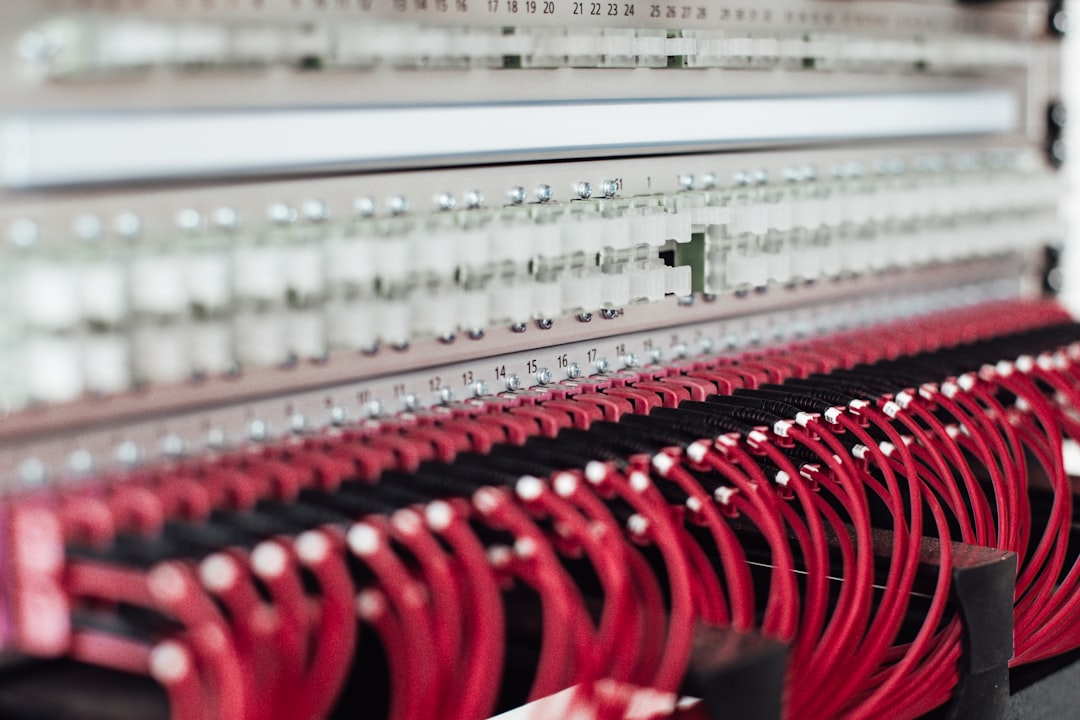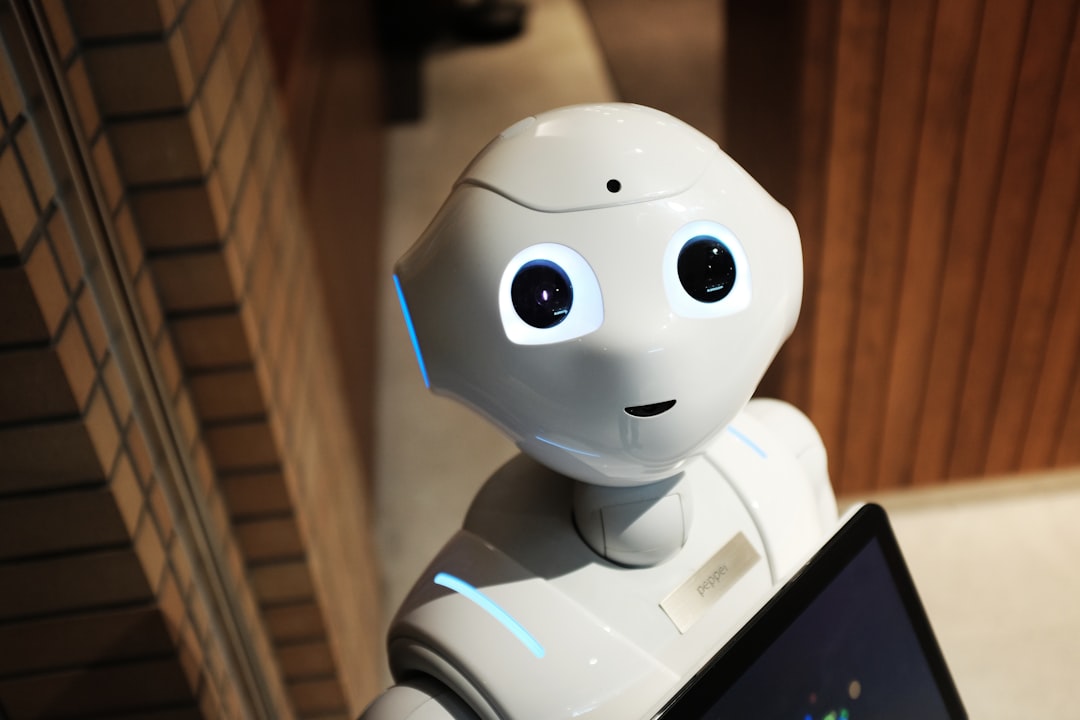Unlock encrypted content
Please enter your SSCE key to initiate on-the-fly decryption.
Decryption key: (Click cancel if you don't have the key)
Copied link to clipboard.
This feature is unavailable for free accounts. Upgrade now and enjoy all Premium benefits.
Go Premium!
This feature is unavailable for free accounts. Upgrade now and enjoy all Premium benefits.
Go Premium!
Please open this page in browser ( Google Chrome or Safari ) to use this feature.
Open In Browser
The Future of Technology: AI, Cryptocurrency, Autonomous Driving, and More.
Random related video for this blog.
Copied share link to clipboard.
Artificial intelligence (AI), cryptocurrency, autonomous driving, data sharing options, smart contracts, cyborgs and androids, protection for shared links, document sharing, genetic engineering, machine learning, and data storage are all aspects of the future of technology. These emerging technologies are changing the way we live, work, and interact with each other. In this article, we will explore each of these technologies in detail and discuss their impact on society.
Artificial Intelligence (AI)
Artificial intelligence is a branch of computer science that focuses on creating intelligent machines that can perform tasks that typically require human intelligence, such as visual perception, speech recognition, decision-making, and language translation. AI is being used in a wide range of applications, from self-driving cars to virtual assistants, and is expected to revolutionize many industries in the coming years.
One of the most significant benefits of AI is its ability to process vast amounts of data quickly and accurately. This has led to the development of machine learning algorithms that can analyze data to identify patterns and make predictions. For example, AI is being used in healthcare to analyze patient data and develop personalized treatment plans. In finance, AI is being used to analyze market trends and make investment decisions.
Another area where AI is making an impact is in the development of autonomous systems. Autonomous systems are machines that can operate without human intervention, such as self-driving cars, drones, and robots. These systems rely on AI to make decisions based on their environment, making them more efficient and safer than traditional human-operated systems.
Cryptocurrency
Cryptocurrency is a digital or virtual currency that uses cryptography to secure transactions and control the creation of new units. Cryptocurrencies are decentralized, meaning they are not controlled by any central authority, such as a government or bank. Instead, they rely on a network of computers to verify transactions and maintain the integrity of the system.
One of the most well-known cryptocurrencies is Bitcoin, which was created in 2009. Since then, thousands of other cryptocurrencies have been created, each with its unique features and use cases. Cryptocurrencies offer several advantages over traditional currencies, such as lower transaction fees, increased privacy, and faster transactions.
One of the most significant challenges facing cryptocurrencies is their volatility. The value of cryptocurrencies can fluctuate widely, making them a risky investment. However, as more businesses and individuals adopt cryptocurrencies, their value is expected to stabilize.
Autonomous Driving
Autonomous driving, also known as self-driving cars, is an emerging technology that has the potential to revolutionize the way we travel. Autonomous cars use a combination of sensors, cameras, and machine learning algorithms to navigate roads and make driving decisions.
One of the most significant benefits of autonomous driving is its potential to reduce accidents and traffic congestion. Autonomous cars are less likely to make mistakes than human drivers, and they can communicate with each other to optimize traffic flow. This could lead to significant improvements in safety and mobility, particularly in urban areas.
However, there are several challenges to overcome before autonomous driving becomes widespread. One of the most significant challenges is developing reliable and robust sensor technology that can operate in all weather conditions and environments. Additionally, there are legal and regulatory issues to consider, such as liability in the event of an accident.
Data Sharing Options
Data sharing options are becoming increasingly important as more businesses and individuals rely on digital data. Data sharing options allow users to share data securely and efficiently, without the need for physical storage devices or complex network infrastructure.
One of the most popular data sharing options is cloud storage. Cloud storage allows users to store and access data from anywhere with an internet connection, making it ideal for remote work and collaboration. Additionally, cloud storage providers often offer advanced security features, such as encryption and two-factor authentication, to protect user data.
Another data sharing option is file transfer services, such as FileLu. File transfer services allow users to send large files quickly and securely, without the need for email attachments or physical storage devices. File transfer services often offer encryption and other security features to protect user data.
Smart Contracts
Smart contracts are self-executing contracts that use blockchain technology to enforce the terms of an agreement. Smart contracts are designed to be transparent, secure, and tamper-proof, making them ideal for applications such as supply chain management and financial transactions.
One of the most significant benefits of smart contracts is their ability to reduce the need for intermediaries, such as banks or lawyers. Smart contracts can automate many of the processes involved in a transaction, such as payment processing and document verification, reducing the time and cost of completing a transaction.
However, there are several challenges to overcome before smart contracts become widespread. One of the most significant challenges is developing a standard for smart contract programming languages, as there are currently many different languages in use. Additionally, there are legal and regulatory issues to consider, such as the enforceability of smart contracts in different jurisdictions.
Cyborgs and Androids
Cyborgs and androids are fictional or hypothetical beings that combine human and machine components. Cyborgs typically have a human brain and other biological components, such as limbs or organs, that are augmented with technology. Androids, on the other hand, are fully synthetic beings that are designed to look and act like humans.
While cyborgs and androids are still largely the stuff of science fiction, there are several real-world applications for these technologies. For example, prosthetic limbs are becoming increasingly advanced, with some models incorporating sensors and other technology to improve functionality. Additionally, robots are being developed that can perform tasks that are dangerous or difficult for humans, such as deep-sea exploration or space travel.
Protection for Shared Links
Protection for shared links is becoming increasingly important as more businesses and individuals rely on digital data. Shared links are often used to share files, documents, and other sensitive information, making them a target for hackers and other malicious actors.
One way to protect shared links is to use encryption. Encryption involves encoding data so that it is unreadable without a decryption key, making it more difficult for hackers to access sensitive information. Additionally, some file transfer services, such as FileLu, offer password protection and other security features to protect shared links.
Document Sharing
Document sharing is an essential aspect of many businesses and organizations. Document sharing allows users to collaborate on projects, share information, and work more efficiently. However, document sharing can also pose security risks if sensitive information is shared accidentally or with unauthorized users.
One way to mitigate these risks is to use secure document sharing platforms. Secure document sharing platforms, such as FileLu, offer advanced security features, such as encryption and password protection, to protect user data. Additionally, some platforms offer granular access controls, allowing users to control who can access specific documents or folders.
Genetic Engineering
Genetic engineering is the process of manipulating genes to alter the characteristics of an organism. Genetic engineering has the potential to revolutionize many fields, such as medicine, agriculture, and energy production. For example, genetic engineering could be used to develop crops that are more resistant to pests and disease, or to develop new treatments for genetic diseases.
However, there are several ethical and safety concerns associated with genetic engineering. For example, some critics argue that genetic engineering could be used to create "designer babies" with specific traits, leading to social inequality. Additionally, there are concerns about the long-term effects of genetic engineering on the environment and human health.
Machine Learning Data Storage
Machine learning data storage is an emerging technology that uses machine learning algorithms to optimize data storage and retrieval. Machine learning data storage systems can analyze data to identify patterns and make predictions, allowing them to optimize storage and retrieval based on usage patterns.
One of the most significant benefits of machine learning data storage is its ability to reduce costs and improve efficiency. Machine learning data storage systems can identify data that is rarely accessed and move it to lower-cost storage options, such as tape or cloud storage. Additionally, machine learning data storage systems can optimize data retrieval, reducing the time and cost of accessing data.
In conclusion, the future of technology is exciting and full of possibilities. AI, cryptocurrency, autonomous driving, data sharing options, smart contracts, cyborgs and androids, protection for shared links, document sharing, genetic engineering, machine learning, and data storage are all technologies that are changing the way we live and work. By embracing these technologies and addressing the challenges they present, we can create a better future for ourselves and future generations.
FileLu offers secure and reliable file transfer and storage services, with advanced security features such as encryption and password protection. With plans ranging from 10 GB to 500 TB, FileLu is an excellent choice for businesses and individuals who need secure and efficient data sharing options.
By Amelia Isabella.
Email: [email protected]
Related
Effortless File Organization and Collaborative Video Editing: The Power of...
June 3, 2023
Read More
Popular
The Future of Technology: Exploring Biohacking, Space Tourism, and Digital...
November 23, 2025
Read More
The Future of File Sharing: Streamlined Workflows for Photographers and...
November 19, 2025
Read More
Exploring the Benefits of Cloud Storage and Innovative Technologies in...
November 26, 2025
Read More
The Future of Digital Transformation: Exploring Smart Homes, Efficient File...
November 30, 2025
Read More
Latest
The Future of Digital Transformation: Exploring Smart Homes, Efficient File...
November 30, 2025
Read More
Exploring the Benefits of Cloud Storage and Innovative Technologies in...
November 26, 2025
Read More
The Future of Technology: Exploring Biohacking, Space Tourism, and Digital...
November 23, 2025
Read More
The Future of File Sharing: Streamlined Workflows for Photographers and...
November 19, 2025
Read More
Exploring the Intersection of Technology: From Cybersecurity to Augmented Reality...
November 16, 2025
Read More
The Future of File Management: Embracing Edge Computing and Efficient...
November 12, 2025
Read More
The Future of File Sharing: Exploring User-Friendly Solutions and Data...
November 5, 2025
Read More
The Future of Cloud Storage: How FileLu Empowers Creative Professionals...
November 2, 2025
Read More
The Future of Autonomous Technologies: Innovations in Robotics, File Sharing,...
October 29, 2025
Read More
Emerging Technologies Revolutionizing File Management: From Li-Fi to Robust Collaboration...
October 26, 2025
Read More
Emerging Technologies: Exploring the Impact of File Access Auditing, Genetic...
October 19, 2025
Read More
The Future of Data Storage: Exploring Advanced Encryption, Mobile Integration,...
October 5, 2025
Read More
Exploring the Future of Data Management: Security, Efficiency, and Cognitive...
September 28, 2025
Read More
Revolutionizing Data Management: Innovations in Storage, Security, and Sustainable Technology.
September 24, 2025
Read More

























